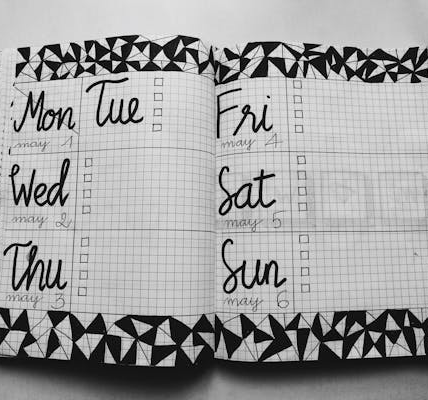Wordle, the simple yet addictive word-guessing game puzzle, has captured the hearts of millions worldwide. With its daily challenge, players are given six attempts to guess a five-letter word. While the game relies on skill and vocabulary, many find themselves seeking a little extra help. This is where Wordle hints come in.
Understanding Wordle Hints
Wordle hints are essentially clues or information that can guide players towards the correct answer. They can vary in form, from subtle suggestions to direct revelations. The effectiveness of a hint depends on the player’s skill level and the difficulty of the puzzle.
Types of Wordle Hints
There are several types of Wordle hints available:
- Letter Placement Hints: These hints indicate the correct placement of specific letters within the word. Like “The letter A is in the suitable position” or “The letter E is in the sentence but not in its proper position.”
- Word Structure Hints: These hints provide information about the word’s structure, such as “The word contains two vowels” or “The word starts with a consonant.”
- Word Category Hints: These hints narrow down the possibilities by suggesting the word’s category, like “The word is an animal” or “The word is a type of food.”
- Direct Hints: These hints provide more explicit information, such as “The word rhymes with ____” or “The word is a synonym for ____.”
- Full Answer: While not technically a hint, some sources provide the full answer to the puzzle.
How to Use Wordle Hints Effectively
To maximize the benefit of Wordle hints, consider the following tips:
- Start with General Hints: Begin with broader hints like word structure or category to narrow down the possibilities.
- Combine Hints: Use multiple hints together to increase your chances of guessing the correct word.
- Avoid Overreliance: Hints should be used as a tool, not a crutch. Try to solve the puzzle on your own before resorting to hints.
- Consider Hint Difficulty: Some hints are more helpful than others. Choose hints that provide valuable information without giving away the answer.
Where to Find Wordle Hints
Wordle hints are readily available online. Here are some popular sources:
- Social Media: Many people share their Wordle experiences and hints on platforms like Twitter and TikTok.
- Wordle-Dedicated Websites: Numerous websites offer daily Wordle hints and solutions.
- Online Forums and Communities: Online forums and communities dedicated to word games often have discussions about Wordle and share hints.
- News Outlets: Some news outlets include Wordle hints in their daily puzzles or articles.
The Controversy Surrounding Wordle Hints
While Wordle hints can be a fun and helpful way to enhance the game, they also raise questions about the spirit of the challenge. Some players argue that using hints diminishes the satisfaction of solving the puzzle independently. Others believe that hints can make the game more accessible to a wider audience.
Ultimately, the decision to use Wordle hints is a personal one. There is no right or wrong answer. The most important thing is to enjoy the game in a way that is fun and rewarding for you.
Wordle Hint Etiquette
If you choose to share Wordle hints online, consider the following etiquette:
- Spoiler Warnings: Use clear spoiler warnings to protect other players who haven’t solved the puzzle yet.
- Respect Other Players: Be mindful that not everyone wants to use hints. Avoid pressuring others to use them.
- Provide Constructive Feedback: If you find a hint helpful or unhelpful, share your feedback with the hint provider.
Wordle Hint Tools and Resources
While many people rely on social media or word-of-mouth for hints, there are dedicated tools and resources available to assist Wordle players:
- Wordle Solver Apps: These apps allow users to input known letters and their positions to generate potential word solutions.
- Word Frequency Lists: By analyzing the frequency of letters in English words, players can make more informed guesses.
- Online Dictionaries and Thesaurus: These resources can help players expand their vocabulary and find alternative word options.
Wordle Hints FAQ
General Questions
Q: What are Wordle hints?
A: Wordle hints are clues or information that can help players solve the daily Wordle puzzle. They can range from general tips to specific letter placements.
Q: Are Wordle hints cheating?
A: This is a matter of personal opinion. Some players consider hints as a helpful tool, while others believe they detract from the challenge. Ultimately, the decision to use hints is up to the individual player.
Q: Where can I find Wordle hints?
A: Wordle hints are widely available online. You can find them on social media platforms, dedicated Wordle websites, and various online forums.
Q: How can I use Wordle hints effectively?
A: Start with general hints to narrow down possibilities, combine multiple hints for better results, avoid overreliance on hints, and consider the difficulty of the hint.
Types of Hints
Q: What are the different types of Wordle hints?
A: Common types include letter placement hints, word structure hints, word category hints, direct hints, and full answers.
Q: Can you give examples of each type of hint?
- A:Letter placement hint: “The letter A is in the correct position.”
- Word structure hint: “The word contains two vowels.”
- Word category hint: “The word is a type of animal.”
- Direct hint: “The word rhymes with ‘gate’.”
- Full answer: This is the entire word itself.
Wordle Strategy and Tips
Q: Can Wordle hints help me improve my gameplay?
A: Yes, analyzing hints can help you learn about word patterns, letter frequency, and common word structures.
Q: Are there any popular Wordle starting words?
A: Some commonly used starting words include “ADIEU,” “MEDIA,” “ARISE,” and “RADIO.” These words contain multiple vowels and common consonants.
The Future of Wordle Hints
As Wordle continues to evolve, so too will the landscape of Wordle hints. New platforms and technologies may emerge, offering innovative ways to provide hints and solve puzzles. It will be interesting to see how the role of hints in the Wordle community develops over time.
To read more, click here.




